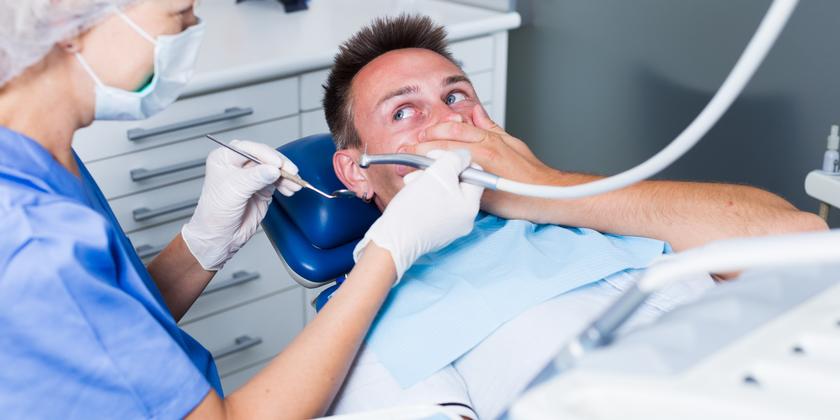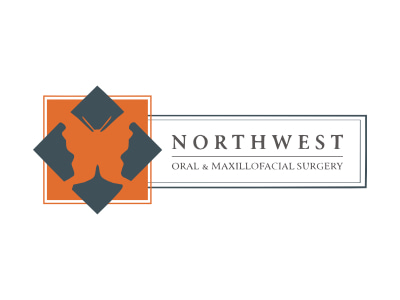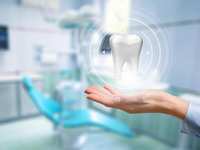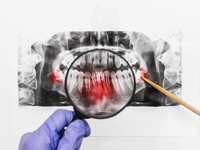Understanding and Managing Abscessed Teeth: Causes, Symptoms, and Treatments

Oral health plays a crucial role in our overall well-being. When dental issues arise, they can cause significant discomfort and even severe complications.
One such condition is an abscessed tooth, which demands immediate attention and professional care.
What is an Abscessed Tooth?
An abscessed tooth refers to a dental infection that typically originates from a bacterial infection within the inner pulp of the tooth or the surrounding gum tissue.
These dental abscesses are often painful, but not always, and the bacterial infection can spread to the root of the tooth and result in the formation of a pocket of pus, which causes swelling, pain, and potential complications.
While you typically hear complaints about an “abscessed tooth”, the reality is that dental abscesses can form inside the teeth, in the gums, or in the bone that holds the teeth in place.
An abscess at the end of the tooth is called a periapical abscess; an abscess in the gum is called a periodontal abscess.
“A tooth abscess is a bacterial infection found in the inner part of the tooth where pus has collected and can cause moderate to severe pain in people who suffer from the condition,” says Colgate. “Once the bacteria have made its way inside, it will spread down to the root and cause both inflammation and swelling. Once inflammation occurs, it will force the pus into a tight space (known as the abscess) at the tip of the root where the swelling exists.”
Dental professionals advise patients to seek care as soon as possible because abscesses will not go away on their own, and they can even spread to other parts of your body and make you ill.
Symptoms of an Abscessed Tooth
The symptoms of an abscessed tooth can be quite uncomfortable and often include:
- Severe Toothache: The pain associated with an abscessed tooth is usually intense and persistent. It can be throbbing or sharp and might worsen when chewing or applying pressure to the affected area. The throbbing may come on suddenly and get gradually worse. This pain also can worsen when you lay down and can disturb your sleep.
- Spreading Pain: You may have pain that spreads to your ear, jaw, and neck on the same side as the affected tooth or gum. Lymph nodes under the jaw or in the neck may become tender or swollen.
- Swelling and Redness: The gum tissue around the infected tooth can become swollen and red due to the presence of inflammation and infection. Gums may appear shiny, red, and swollen.
- Sensitivity: The tooth might become sensitive to temperature changes, especially to hot or cold food and drinks.
- Discolored and/or Loose Tooth: Abscesses may cause a tender, discolored and/or loose tooth.
- Foul Taste and Odor: Pus, which is a byproduct of the infection, can sometimes leak into the mouth, causing a foul taste and bad breath.
- Fever: In severe cases, the infection can lead to the development of a fever.
Causes of an Abscessed Tooth and Risk Factors
An abscessed tooth is often the result of untreated tooth decay or gum disease.
The following factors can contribute to its development:
- Tooth Decay: When bacteria penetrate the tooth's enamel, it can lead to cavities. If left untreated, the infection can spread to the pulp and create an abscess.
- Gum Disease: Inflammation and infection of the gum tissue, known as gingivitis or periodontitis, can provide a pathway for bacteria to infiltrate the tooth's inner structures.
- Trauma: A physical injury to the tooth can damage the pulp, making it susceptible to infection.
- Weakened Immune System: Individuals with compromised immune systems are at a higher risk of dental infections, including abscessed teeth.
“A periapical tooth abscess occurs when bacteria invade the dental pulp. The pulp is the innermost part of the tooth that contains blood vessels, nerves, and connective tissue,” says The Mayo Clinic. “Bacteria enter through either a dental cavity or a chip or crack in the tooth and spread all the way down to the root. The bacterial infection can cause swelling and inflammation at the tip of the root.”
The Mayo Clinic says that the following factors can also increase your risk of a tooth abscess:
- Poor Dental Habits and Care. Not taking proper care of your teeth and gums — such as not brushing your teeth twice a day and not flossing — can increase your risk of dental problems. Problems may include tooth decay, gum disease, tooth abscess, and other dental and mouth complications.
- A Diet High in Sugar. Frequently eating and drinking foods rich in sugar, such as sweets and sodas, can contribute to dental cavities and turn into tooth abscesses.
- Dry Mouth. Having a dry mouth can increase your risk of tooth decay. Dry mouth is often due to the side effects of certain medications or issues related to aging.
In order to avoid a dental abscess try these best oral hygiene practices, according to The Mayo Clinic:
- Drink water that contains fluoride.
- Consider using an antiseptic or a fluoride mouth rinse to add an extra layer of protection against tooth decay.
- Brush your teeth for two minutes at least twice a day with fluoride toothpaste.
- Use dental floss or a water flosser to clean between your teeth daily.
- Replace your toothbrush every 3 to 4 months, or whenever the bristles are frayed.
- Eat healthy food, limiting sugary items and between-meal snacks.
- Visit your dentist regularly for checkups and professional cleanings.
Diagnosis of an Abscessed Tooth
Diagnosing an abscessed tooth requires a comprehensive evaluation by a dental professional.
An oral surgeon or dentist will examine the affected area, looking for signs of swelling, redness, and pus. They may also conduct X-rays and order lab tests to identify the extent of the infection and its impact on the tooth and surrounding tissues.
“An abscessed tooth is often very sensitive to touch or pressure, so your dentist may apply both to the tooth in question to determine your pain levels,” says Colgate.
Even if your abscessed tooth starts to feel better, treatment should be sought.
“A tooth abscess won't go away without treatment. If the abscess ruptures, the pain may improve a lot, making you think that the problem has gone away — but you still need to get dental treatment,” says The Mayo Clinic.
Treatment Options for an Abscessed Tooth
The treatment for an abscessed tooth aims to eliminate the infection, alleviate pain, and preserve the tooth whenever possible. The options include:
- Drainage: In some cases, draining the abscess might be necessary to relieve pressure and promote healing.
- Root Canal: This procedure involves removing the infected pulp, cleaning the inside of the tooth, and sealing it to prevent further infection. A crown is often placed over the tooth to restore its strength and function.
- Extraction: If the tooth is severely damaged or the infection is too extensive, the tooth may need to be extracted.
- Antibiotics: In cases of severe infection, antibiotics may be prescribed to help control the spread of bacteria.
“While the area is healing, your dentist may recommend that you regularly rinse your mouth with warm salt water and take over-the-counter pain relievers as needed to help ease any discomfort you may encounter,” says Colgate.
Consequences of Untreated Abscessed Teeth
Neglecting the treatment of an abscessed tooth can lead to serious complications:
- Spread of Infection: The infection can spread to the jawbone, adjacent teeth, or even into the bloodstream, causing systemic health issues.
- Abscess Rupture: If the abscess ruptures, it can release pus into the mouth, exacerbating the infection and increasing the risk of further complications.
- Bone Loss: Untreated infections can lead to bone loss in the jaw, affecting the stability of adjacent teeth.
- Sepsis: In rare cases, a severe dental infection can lead to sepsis, a life-threatening condition characterized by a body-wide inflammatory response.
“If you have a weakened immune system and you leave a tooth abscess untreated, your risk of a spreading infection increases even more,” says The Mayo Clinic.
Abscessed Tooth Prognosis and Recovery
The prognosis for recovery from an abscessed tooth is generally positive when timely and appropriate treatment is sought.
With modern dental techniques and medications, the infection can be controlled, pain can be alleviated, and the affected tooth's functionality can often be preserved.
It's important, however, to follow the dentist's instructions for post-treatment care and attend any recommended follow-up appointments.
If you suspect you have an abscessed tooth, don't hesitate to reach out to one of the board-certified oral surgeons at Northwest Oral & Maxillofacial Surgery or to your dentist to ensure your well-being and restore your oral health.

















